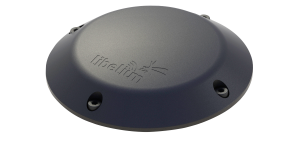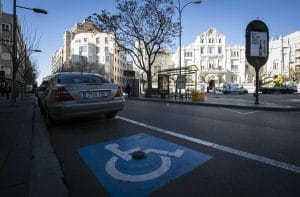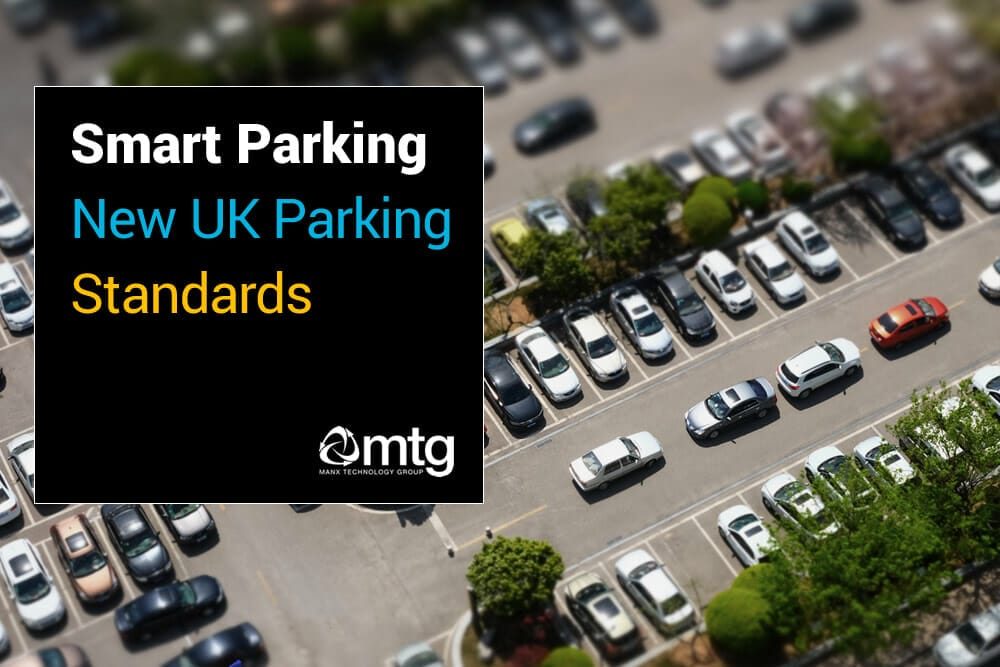The Alliance for Parking Data Standards (APDS) has commenced a project that will see the creation of new data standards that will revolutionise parking. The combination of Smart Parking, IoT and these new data standards will change the way we park; available parking spaces, pricing and permitted times will be communicated in real-time.
The truth is – these types of parking applications are possible today, but the ecosystem is fragmented – with different forms of technology using different data-sets and a variety of platforms and APIs. The inconsistency ultimately impacts adoption as a car driver would need several various applications, dependant upon the area. For anyone who travels between different regions of the UK, this would quickly become a frustration.
The goal of defining a consistent data format and a set of standards means, in theory, no matter where you drive in the UK – web services and apps – can consume and present the data in a consistent manner. Imagine Google Maps, including an overlay of real-time parking spaces and car park utilisation.
Standards
Bringing together applications, data and sensor platforms into a set of standards will help the UK Government achieve its ambition to end the use of outdated, legacy parking systems. The ultimate goal is to remove the friction from parking and drive more shoppers onto British high streets. The terminology is currently described as the “UK Parking data standardisation”, but you would imagine, as the project progresses, it may receive a more catchy name or acronym!
The new Smart Parking standards will be created by the APDS, a body funded by the UK Department of Transport. Commentators are forecasting that the new initiative will have a similar impact on transport patterns as the Oyster card did! There is a lot of enthusiasm and hope attached to this project.
UK Future of Mobility Minister, Michael Ellis commented:
We are on the brink of a revolution for the future of transport, with ground-breaking technologies creating huge opportunities for cleaner, cheaper, safer and more reliable journeys.
We now need to ensure the infrastructure surrounding these technologies is in place and can accommodate these innovations. The new parking data standards will bring government, private organisations and technologies together to ensure a smoother parking experience for drivers.
Nigel Williams, Chair of the British Parking Association and Chair of the APDS:
The new standards will enable the next generation of apps and connected cars to find a parking space, park and pay – with little or no intervention from the driver. The involvement of the British Parking Association in APDS has ensured that the UK is at the forefront of innovation to improve the customer experience of parking.
Research and Development
There will be several research and development centres established at Cambridgeshire County Council, Manchester City Council, Oxfordshire County Council and several city councils in South Essex. Each project will receive a share of $1m to begin efforts to implement these new parking standards.
Smart Parking Ecosystem

Smart Parking infrastructure on open-roads is generally made up of four components:
- Sensors. The Smart Parking sensors are installed within or adjacent to the parking spaces.
- Communication Network. The network is responsible for sending data back from the sensors to a cloud platform.
- Cloud Platform. The cloud platform stores, analyses and shares the data with apps, platforms and websites.
- User Interface. The user interface may be an app, website or API – that is the magic that enables Smart Parking. It could present the driver with information, or the town centre manager with insights and trends.
The sensors detect when a vehicle is parked in a space (or the parking space is vacant). The sensor then communicates back to a gateway or cloud platform, signalling its status. The platform can then make this data available to an app, website or API – which can then be used by partner apps or systems.
Smart Parking Applications

- Occupancy and utilisation of Electric Chargepoints can be monitored and communicated in real-time. The monitoring of EV spaces is beneficial for both drivers and those responsible for enforcing fair usage.
- Disabled Parking and Blue Badge. The status of these spaces can be monitored in real-time – particularly useful for people who value these spaces and where often, these spaces are open to abuse.
- Real-time parking space locations. The data and apps will be able to communicate the location and number of available spaces in the town centre. Real-time location apps eliminate guesswork, removes friction and makes the entire shopping experience more enjoyable.
- Car Park Utilisation Data. Car-parks are invaluable in a town centre setting; however, at peak times, they can quickly fill up. Drivers will then crawl around the car-park waiting for spaces and slowly reaching a vacant area of the car-park. The entrance/exit of the car-parks can then become a cause of congestion. With new standards, the occupancy of a car park can be communicated in real-time – allowing drivers to make informed decisions in regards to their parking.
- Parking Enforcement. Parking attendants will walk around town centres and villages, checking for parking violations. With a real-time data feed – attendants can be alerted to breaches in real-time, with directions – to accelerate enforcement and ensure fair use of parking assets.
- Retail Intelligence. Smart Parking systems provide valuable information to town councils and Government bodies in regards to shopping habits. Smart Parking can show trends, average visit times and utilisation of parking assets. This data can be used to shape policy, aide decision making and allow councils to identify improvements in signage and marketing.
- Partner Apps. In time, you would hope these new standards are incorporated into everyday applications like Google Maps and other similar platforms – making it even more seamless.
How we can help
We are a partner of Libelium – a leading vendor in the IoT and Smart Parking solutions space. MTG can supply smart parking sensors, communication devices and cloud platforms that can underpin your smart parking initiatives. Mindful of these new data standards, we can ensure any Smart Parking solution is future proof and ready for the adoption of the APDS standards.
The Libelium Smart Parking products can detect the presence of a vehicle using radar technology, and transmit the status back to a cloud platform. The sensors are to fit, have extra-long battery life and are more than suitable for the UK weather!
If you would like to speak to our team of experts about your smart parking requirements; please e-mail sales@mtg.im, call +44 1624 777837 or click the Request a Quote button on the right.
UK – Future of Mobility
You can learn more about the future of Mobility and Smart Parking in the following video:
https://www.youtube.com/watch?v=wlqQRp5vhOU




